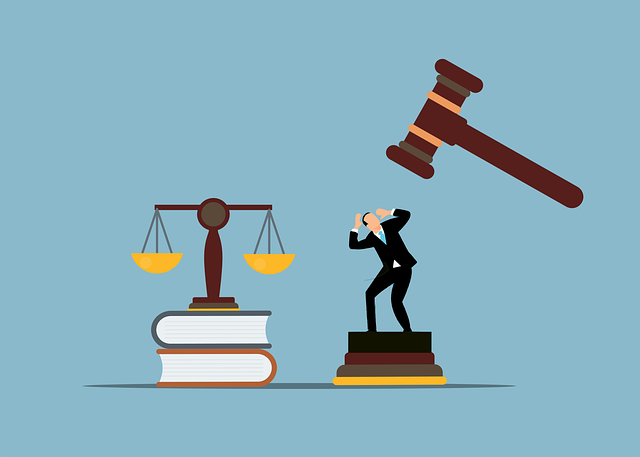Understanding the appeals process is crucial for Woodland residents facing criminal convictions. A The Woodlands criminal lawyer guides clients through this complex journey by initiating a review within 30 days with a Notice of Appeal, submitting written arguments, and advocating during an appellate hearing. These experts demystify legal procedures, challenge evidence, and expose errors to secure fair outcomes. They assist when convictions or sentences are believed unjust due to procedural issues, ineffective counsel, or new evidence, aiming to set aside false convictions or reduce sentences, ensuring justice for their clients.
In pursuit of justice, many individuals find themselves navigating complex legal procedures after a conviction or sentence. If you’re in Woodland, understanding the appeals process is crucial with the help of an experienced Woodlands criminal lawyer. This article serves as your comprehensive guide, detailing every step from appeal strategies to common grounds for reversal. By delving into these insights, you’ll gain valuable knowledge on how a Woodlands criminal lawyer can advocate for a fair outcome, ensuring your rights are protected throughout the journey.
- Understanding the Appeals Process: A Step-by-Step Guide for Woodland Criminal Cases
- The Role of a Woodlands Criminal Lawyer in Navigating Legal Procedures
- Common Grounds for Appealing a Conviction or Sentence
- Preparing and Presenting a Compelling Case: Strategies for Success
Understanding the Appeals Process: A Step-by-Step Guide for Woodland Criminal Cases

Understanding the appeals process is crucial for anyone in Woodland facing a criminal conviction or sentence. Here’s a step-by-step guide tailored to Woodland criminal cases:
1. File a Notice of Appeal: Within 30 days of your judgment, a woodland criminal lawyer must file a formal notice of appeal with the court. This initiates the process, allowing for a review of your case.
2. Prepare Appellate Briefs: After the notice is filed, both parties submit written arguments. Your lawyer will compile a brief detailing reasons for reversing or modifying the conviction or sentence. This includes challenging evidence, procedural errors, and other legal grounds.
3. Submit Evidence: Along with briefs, relevant documents from the trial are submitted to support your case. This could include witness statements, police reports, and any new evidence that wasn’t presented at the original trial.
4. Appeals Hearing: A panel of judges will review your appeal and may schedule a hearing. During this hearing, both sides present their arguments. Your woodland criminal lawyer will have the opportunity to address the court, highlight errors, and defend against the prosecution’s position.
5. Judgment: After considering all evidence and arguments, the appellate court issues a ruling. They can uphold the original conviction, modify it, or overturn it entirely.
The Role of a Woodlands Criminal Lawyer in Navigating Legal Procedures

A Woodlands Criminal Lawyer plays a pivotal role in navigating the complex legal procedures involved in appeals. They are experts in understanding and interpreting the intricate rules and regulations that govern criminal cases, which is essential when building a robust defence strategy. With their deep knowledge of state laws, these lawyers can effectively challenge evidence, question witness testimonies, and exploit procedural errors to strengthen their client’s case.
These legal professionals also possess excellent communication skills, allowing them to articulate complex legal arguments in a clear and compelling manner before judges and juries. They guide clients through the appeals process, ensuring every step is taken to present the most persuasive case possible. Their expertise and dedication are crucial in helping individuals achieve justice and secure more favourable outcomes in their appeals.
Common Grounds for Appealing a Conviction or Sentence

Many clients turn to a Woodlands criminal lawyer when they believe there are grounds for appealing their conviction or sentence. Common reasons include errors in legal procedure, ineffective assistance of counsel, and incorrect interpretations of evidence. An appeal may also be warranted if new evidence has emerged that could significantly change the outcome of the case. These cases often require meticulous review of trial transcripts, witness statements, and legal precedents to build a compelling argument for reversal or modification.
A Woodlands criminal lawyer will carefully assess the unique circumstances of each client’s case to identify potential violations of their rights during the legal process. This could involve challenges to the admissibility of evidence, questions of jury instruction, or allegations of prosecutorial misconduct. The goal is to ensure fairness and justice, ultimately aiming to set aside an unjust conviction or reduce a sentence that is deemed excessive or inappropriate based on the evidence presented.
Preparing and Presenting a Compelling Case: Strategies for Success

Preparing and presenting a compelling case is where a skilled The Woodlands criminal lawyer truly shines. It involves meticulous research, understanding the nuances of the law, and crafting a strategy that addresses the client’s unique circumstances. The lawyer delves into the facts of the case, identifying potential legal errors or gaps in the prosecution’s argument that could sway the appeal court. They meticulously prepare written briefs, summarizing the key issues and presenting them in a clear, concise, and persuasive manner.
During the presentation, the lawyer strategically highlights the client’s story, using compelling evidence to paint a different narrative. They cross-examine witnesses, challenge the admissibility of certain pieces of evidence, and navigate complex legal procedures with ease. The goal is to demonstrate that the conviction or sentence was unjust, unfair, or based on insufficient grounds—a challenging yet rewarding task for an experienced The Woodlands criminal lawyer.
When facing a criminal conviction or sentence in Woodland, turning to an experienced Woodlands criminal lawyer is paramount. They guide clients through the intricate appeals process, ensuring every step is navigated accurately and strategically. By understanding common grounds for appeal and employing effective case preparation strategies, these legal professionals increase the likelihood of overturning convictions or reducing sentences – ultimately fighting for a just outcome for their clients.



